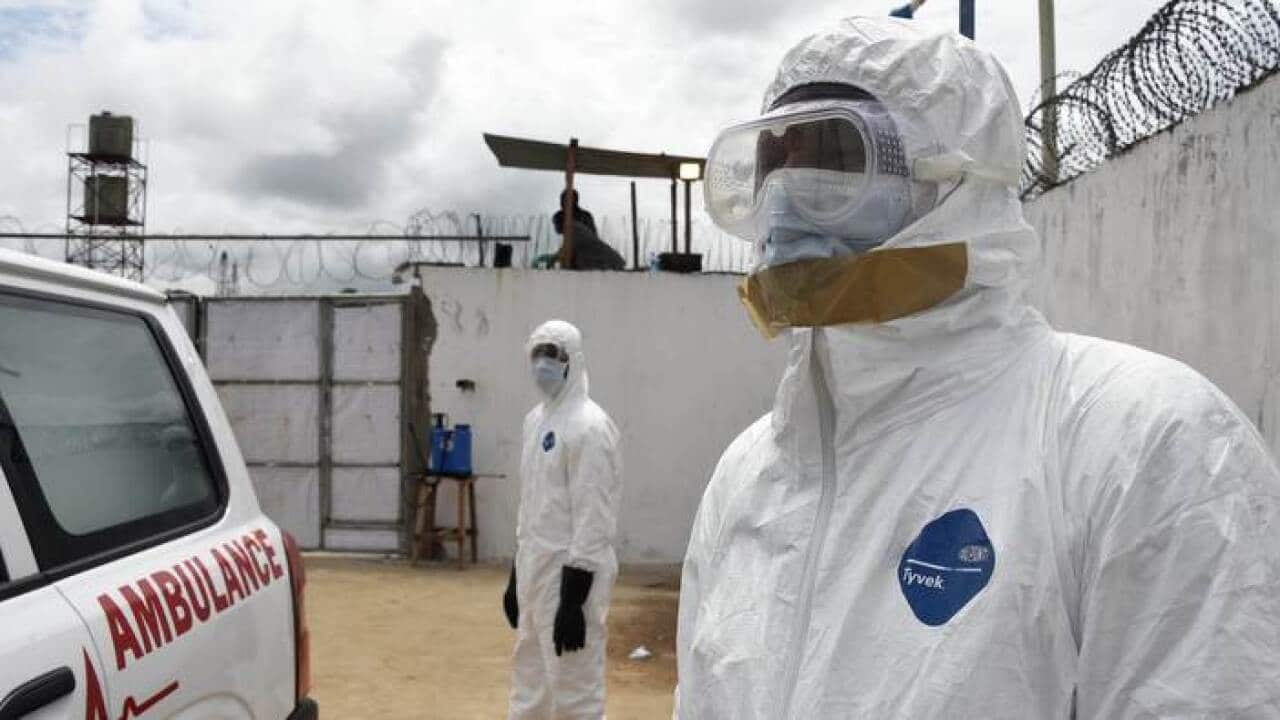(Transcript from SBS World News Radio)
The Ebola outbreak gripping parts of west Africa has had its first case confirmed outside the continent.
Officials say a man who travelled from Liberia to the United States has tested positive to the deadly virus.
And as Santilla Chingaipe reports, it comes as members of the Liberian community in Australia call for more action from the federal government in tackling Ebola.
(Click on the audio tab above to hear the full report)
Authorities in the United States say the unidentified man contracted Ebola in Liberia before travelling to the US two weeks ago.
It says the man was visiting family in the US and showed showed no apparent symptoms of the virus until last Wednesday.
Director of the US Centres for Disease Control, Thomas Frieden, says it wasn't until last Friday that the man was admitted to a Texas hospital and placed in isolation.
"An individual travelling from Liberia has been diagnosed with Ebola in the United States. We received in our laboratory specimens from the individual, tested them and they tested positive for Ebola."
Dr Frieden says authorities are working to identify anyone who came in contact with the man.
He says once identified, they will be placed in isolation for 21 days - the time it takes for symptoms to develop.
"We know that there may have been some family members, one or two or three other community members, and we are there to do additional investigation to identify any other possibilities. Our approach in this kind of case is to cast the net widely to ensure we are identifying even people who may not have had direct contact so that we are erring on the side of safely."
US hospitals have treated several patients who were diagnosed with Ebola in west Africa.
The previous US patients were all medical and other aid workers who were flown to the country in a specially fitted planes.
Dr Frieden says health officials are discussing whether to treat the latest Ebola patient with an experimental drug.
And he's stressed the man poses no immediate risk to the general public.
"The bottom line here is that I have no doubt that we will control this importation or this case of Ebola so that it does not spread in this country. It does reflect the ongoing spread of Ebola in Liberia and west Africa where there are large numbers of cases and while we do not currently know how this individual became infected, they undoubtedly had close contact with someone who was sick with Ebola or who died from it."
According to the World Health Organisation, Ebola has infected more than 6500 people across five west African countries since the start of the year - with most cases in Liberia, Sierra Leone and Guinea.
Almost half of these people have died.
The Australian government recently committed $8 million dollars to help aid agencies tackle the disease.
Moses Vafee is the chair of the group calling itself the Liberians for Empowerment and Development, representing members of Australia's Liberian community.
Mr Vafee welcomes Australia's monetary contribution, but says he'd like to see Australian personnel also provided to help contain the outbreak.
"We need to put the financial resources into human resources and materials and get them on the ground, so we need to do something instead of donating and put people on the ground. For example, the United States put 3,000 soldiers on the ground to help with the management of Ebola."
Mr Vafee says many members of the Liberian community in Australia have been directly impacted on by the outbreak.
"We've got instances where a whole family is wiped out, and only those that are here in Australia are remaining. Six or Seven families in the entire family have died because of Ebola. So it's having an impact. It's stressful, it's depressing. Even when we get into our homes, it's difficult for us to even eat or sleep because we are safe here, but our people are not safe. We are here (Australia), but our hearts are in Liberia."
Meanwhile, the United Nation's children agency has warned that nearly 4,000 African children who have lost one or both parents to Ebola this year face being shunned by frightened and suspicious relatives.
Share

